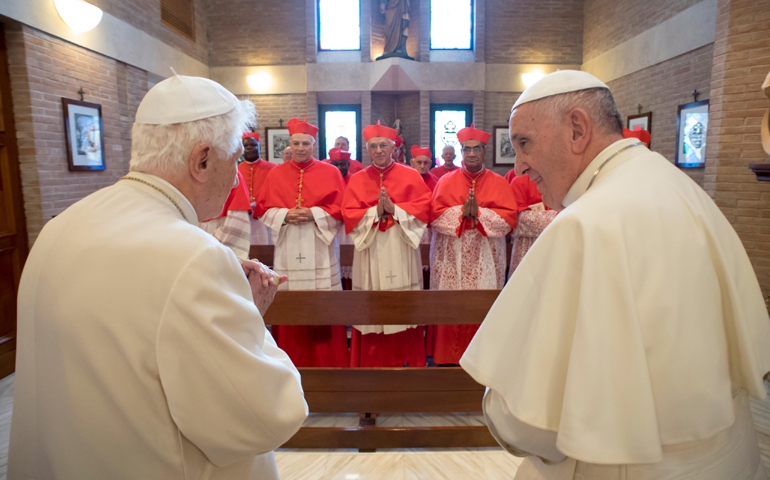Pope Francis marks four years as pope

In four years, the pope has had a profound impact on the church. True, he has not changed the church’s position on birth control, celibacy, women priests and gay marriage, but he has fundamentally changed how we see the church in five ways.
First, the pope has called for a new way of evangelising. He tells us that the first words of evangelisation must be about the compassion and mercy of God, rather than a list of dogmas and rules that must be accepted. He speaks daily of the compassion and love of God. Our response, he says, is to show compassion and love to all our brothers and sisters, especially the poor and marginalised. He not only talks about it; he does it by reaching out to refugees, the homeless, and the sick.
Second, Pope Francis is allowing open discussion and debate in the church. He is not scandalised by disagreements, even over doctrine. It is impossible to exaggerate how extraordinary this is. Only during Vatican II was such a debate possible. Ironically, conservatives who attacked progressives as dissenters under earlier papacies have now become dissenters to the teaching of Pope Francis.
Under Francis, synodal participants were encouraged by the pope to speak their minds boldly and not worry about disagreeing with him. The result is a freer exchange of views, public disagreements, and even outright criticism of the pope by some conservative cardinals. All of this would never have been allowed under earlier popes.
Third, Cardinal Burke and the pope’s critics are right; the pope is presenting a new way of thinking about moral issues in Chapter 8 of Amoris Laetitia. He is moving the church away from an ethics based on rules to one based on discernment. Facts, circumstances, and motivations matter in such an ethics.
Under this approach to moral theology, it is possible to see holiness and grace in the lives of imperfect people, even those in irregular marriages. Rather than seeing the world as divided between the good and the bad, we are all seen as wounded sinners for whom the church serves as a field hospital where the Eucharist is food for the wounded rather than a reward for the perfect. Gone is any attempt to scare people into being good.
Fourth, the pope has raised environmental issues to a central place in the Catholic faith. He recognises that global warming may be the most important moral issue of the 21st century. In his encyclical, Laudato Si’, the pope tells us that “Living our vocation to be protectors of God’s handiwork is essential to a life of virtue; it is not an optional or a secondary aspect of our Christian experience.”
His encyclical was greeted enthusiastically by environmentalists who in the past saw the church as an enemy because of its position on birth control. Now the church is an ally because environmentalists are recognising that religion is one of the few things that can motivate people to the kind of self-sacrifice required to save the planet. The pope’s encyclical has shown the way.
Finally, the pope has moved to reform the governance structures of the church. True, reform of the Roman Curia has proceeded slowly, but it is happening. The financial reforms are spreading through the various Vatican agencies, beginning with the Vatican bank and moving through other entities. The Vatican budgetary process has been tightened up, and various offices have been consolidated. This is all for the good of the church. There is still lots to be done, but it is happening.
More importantly, he is trying to change the culture of the clergy, moving them away from clericalism to a vocation of service. He wants bishops and priests to see themselves as servants of the people of God, not princes.
Most important for the protection of his legacy, he has broken with tradition and seized control of the process for appointing cardinals. Rather than simply promoting prelates in traditional cardinalatial sees, he has reached into the college of bishops for cardinals that reflect his priorities and values. This increases the chances that his successor, elected by these cardinals, will continue his agenda and not roll back the changes that he has made.



